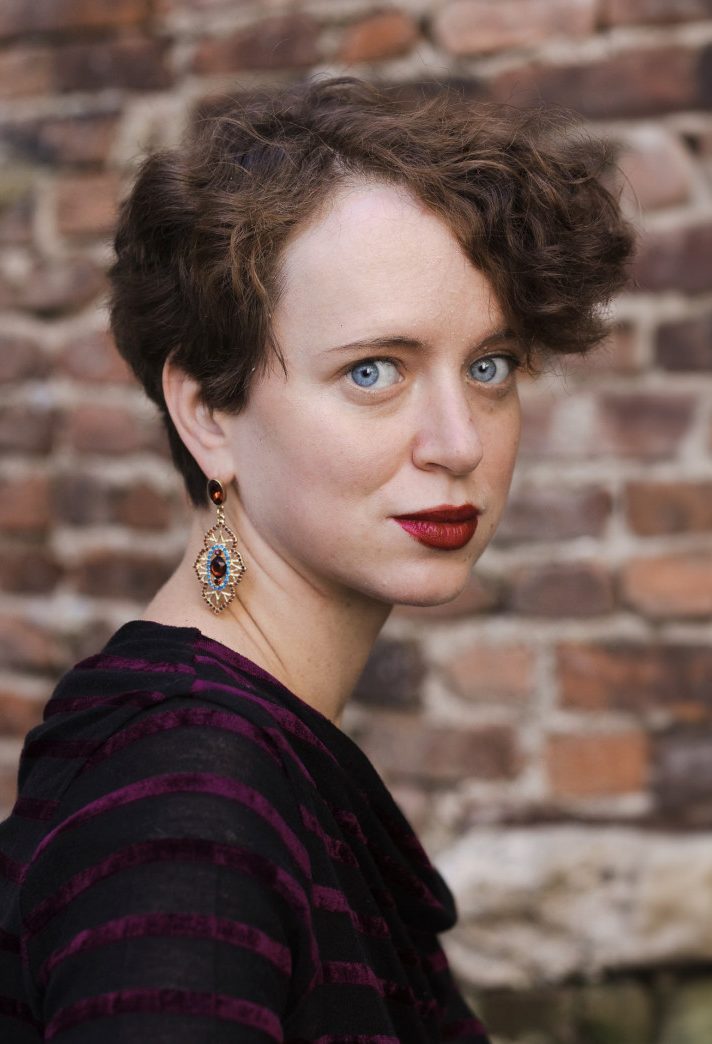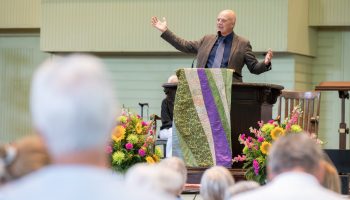
When she was writing her 2020 nonfiction book Strange Rites: New Religions for a Godless World, Tara Isabella Burton took a sweeping look at the myriad ways Americans were keeping “spiritually busy,” even though participation in mainstream religion was plummeting.
What she found was a vast array of spiritual traditions in unexpected places, from the more traditional realms of astrology and witchcraft, all the way to modern contrivances like SoulCycle and the alt-right.
Burton’s argument in that book was that faith isn’t experiencing a decline, but a renaissance. With this argument, she opens the Interfaith Lecture Series for Week Three, and its theme of “Ethics and Meaning-Making Beyond Faith,” at 2 p.m. today in the Hall of Philosophy.
Burton is the author of, in addition to Strange Rites, books like Self-Made: Creating Our Identities from Da Vinci to the Kardashians, and the novels Social Creature, The World Cannot Give, and Here in Avalon, which was just released this year. Currently a visiting fellow at George Mason University’s Mercatus Center, Burton holds a doctorate in theology from the University of Oxford, and has written extensively on religion and culture for numerous outlets.
In Strange Rites, Burton explored how Americans are remixing, rather than abandoning, religion and finding meaning in new — sometimes, admittedly strange — ways. She took this exploration of creating new spiritual practices a step further in 2023’s Self-Made, looking at how as attitudes toward religion, politics and society evolved, the sense of self in the Western world evolved, too — from a collective to an individual mindset.
“The idea that humans not only can, but should, create their own destinies, was hugely significant and controversial from a religious point of view,” Burton wrote for The Next Big Idea. “In the Medieval world, Catholics believed that everything, including your social station and place in the world, was part of God’s overall plan for you and for the whole world. King or peasant, prince or knight, your social role was part of how God made you: not to be questioned or changed.”
The notion of “self-making,” for many, is inextricable from the American dream and the belief in meritocracy. But the power to self-create, Burton argued in her book, has a broader, and contradicting, narrative.
“But more often than not, self-makers were understood not as hardworking individuals who pulled themselves up by their bootstraps, but as special individuals, chosen by God or Fate, who had innate qualities that allowed them to transcend the limitations put on ordinary mortals or the common herd,” Burton wrote. “The self-maker was understood as a kind of demi-god; his superior qualities — and it was usually a ‘he’ — were something you had to be born with. … In this age of winner-takes-all, conniving entrepreneurs could make dazzling fortunes, but ordinary people were blamed for their failure to become the next Andrew Carnegie or JD Rockefeller.”
In an age of internet influencers, new ways of making meaning, and increasingly divided social “tribes,” Burton wrote that, “in the end, maybe that’s what self-making is: claiming the power to reshape reality like a human god. It’s what our celebrities and our entrepreneurs alike do: shaping a public image that reflects not who they “really” are, but who they most want to be. And now, anyone with a smartphone can do it, too.”




